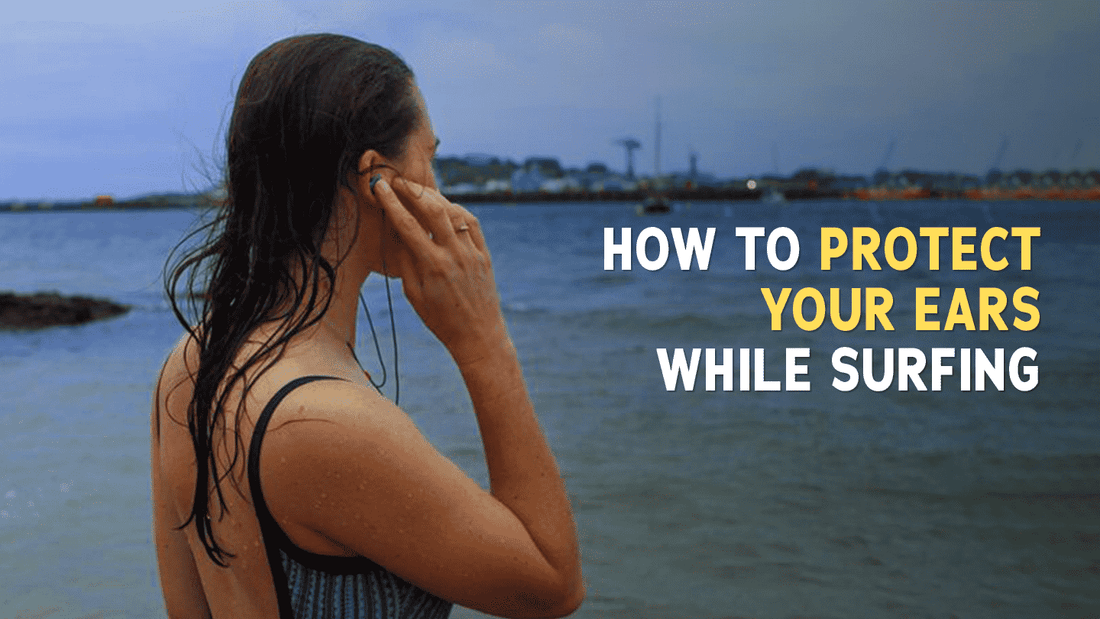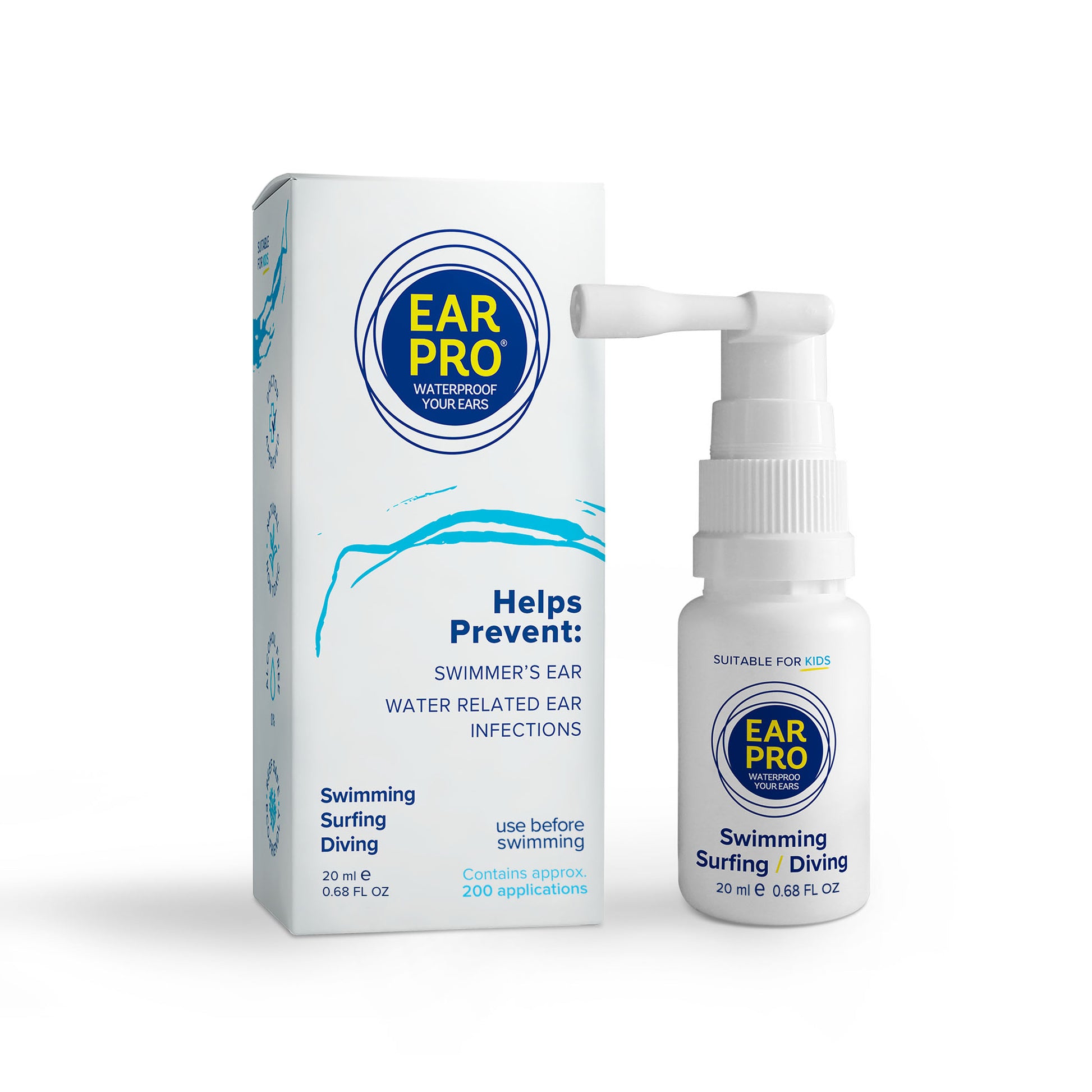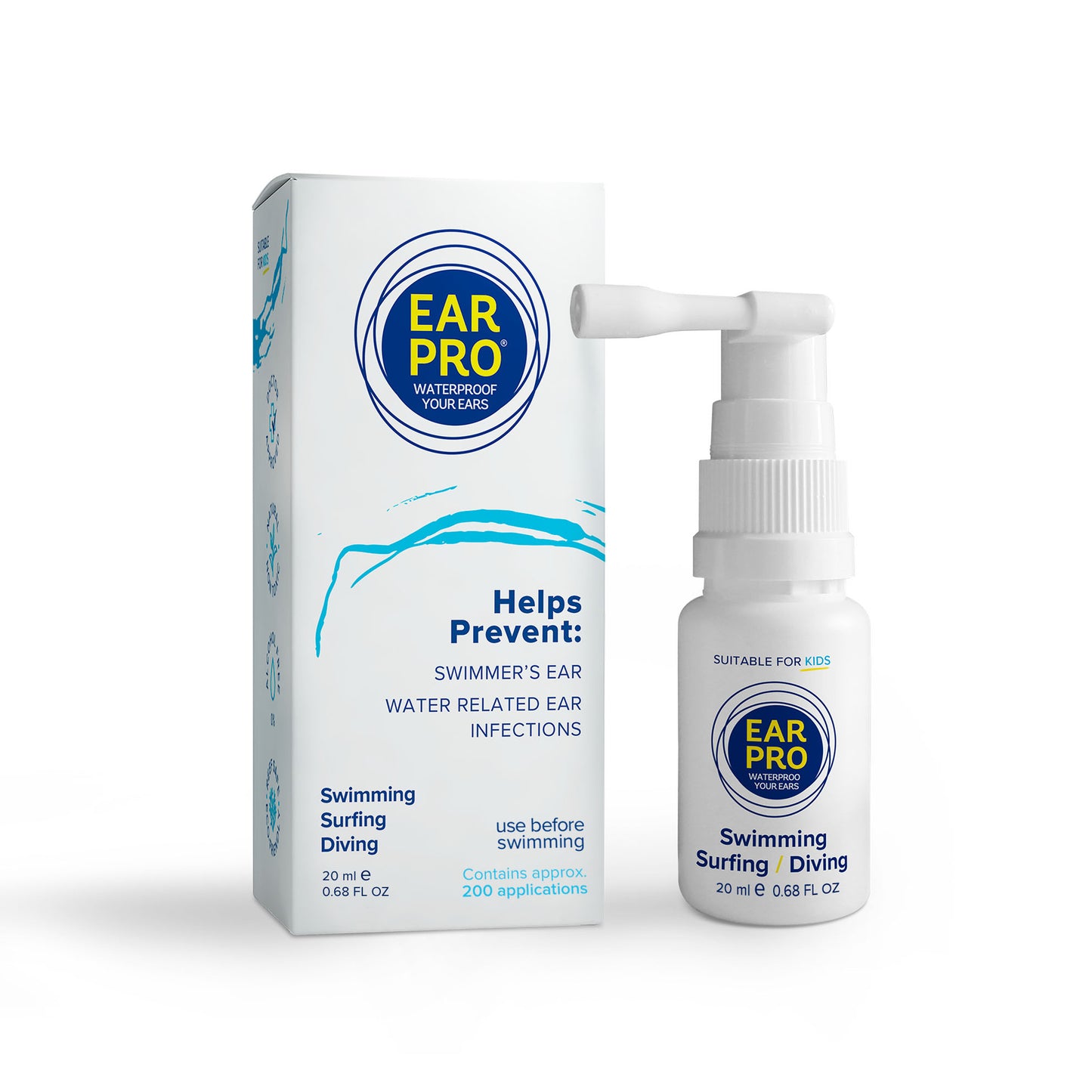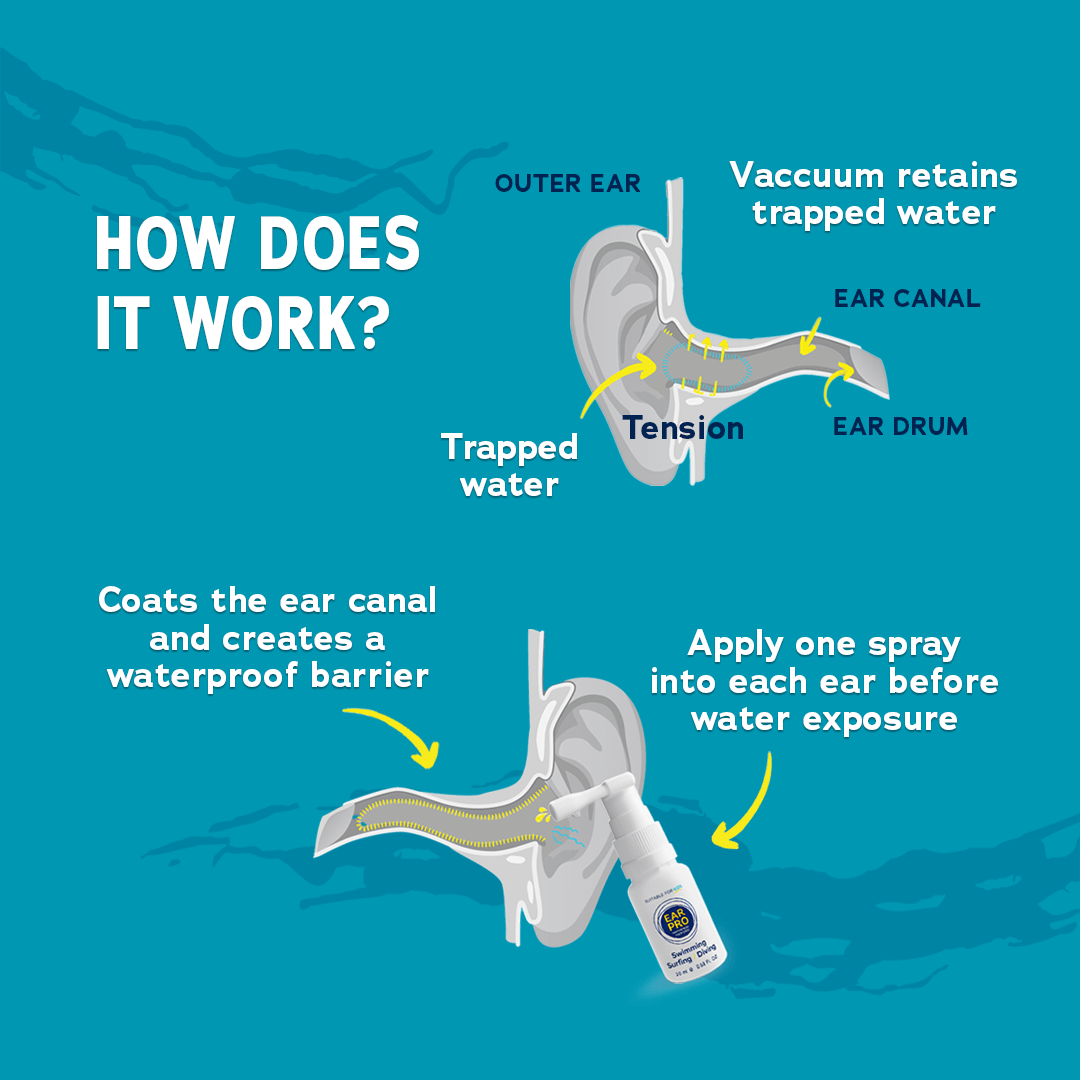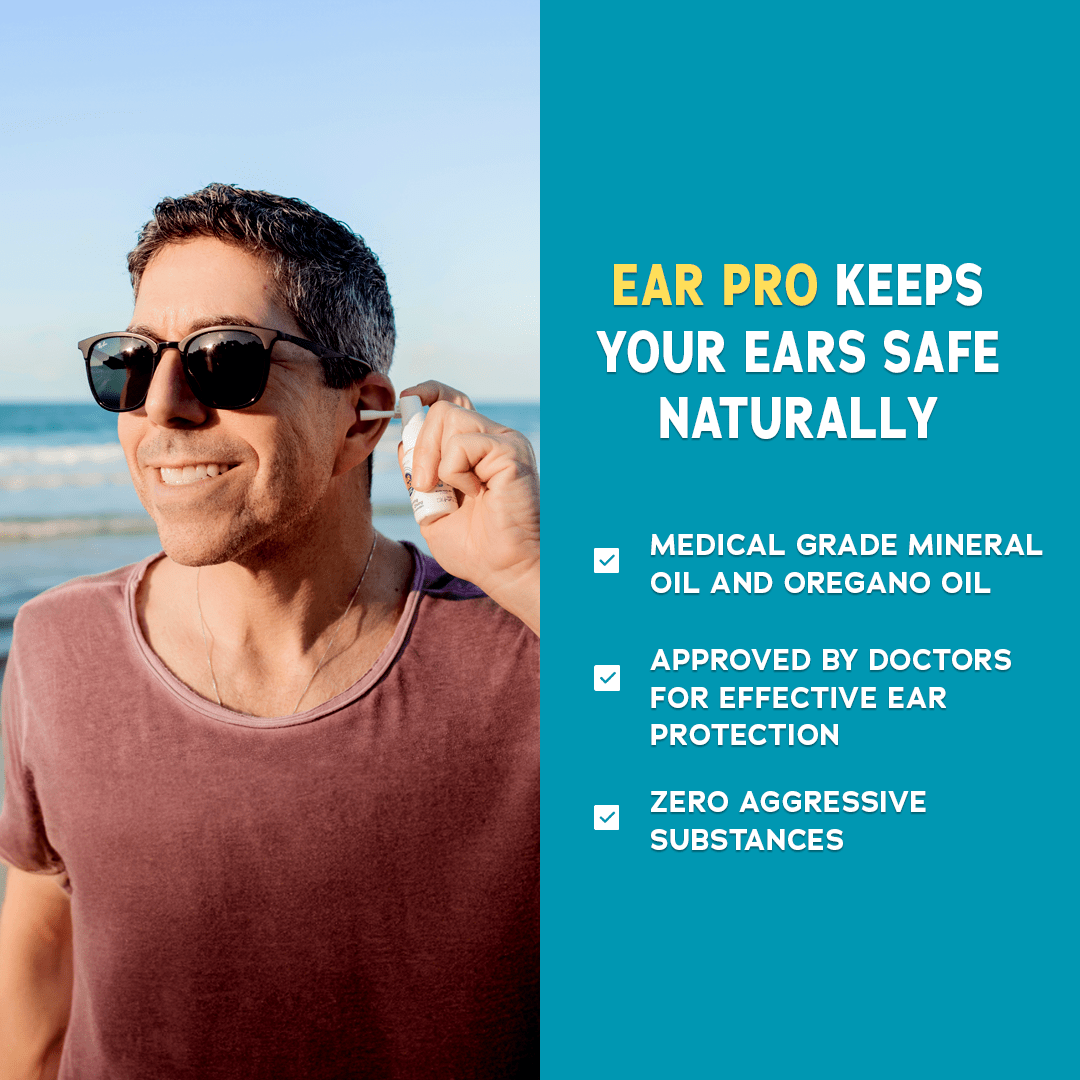Surfing in cold waters can be an incredibly rewarding experience.
However, repeated exposure to cold water and strong winds can severely impact your ear health.
Protecting your ears while surfing is essential to fully enjoying these surf sessions in the cold waters.
Whether you’re a seasoned surfer or just starting out, taking care of your ears is vital to staying safe in the water.
Table of Contents
- What Happens to Your Ears While Surfing?
- Preventative Measures for Protecting Your Ears
- Surfer’s Ear vs. Swimmer’s Ear: Understanding the Difference
- Top Ear Care Products for Surfers
- Natural Remedies to Prevent Ear Infections
- Treatment Options for Surfer’s Ear
- Conclusion
- Frequently Asked Questions
What Happens to Your Ears While Surfing?
When surfing, your ears are exposed to cold water, wind, and sometimes debris, which can damage the ear canal.
The most common issues include surfer's ear, a condition caused by bone growth in the ear canal due to repeated cold water exposure.
Another common issue is swimmer's ear, an infection caused by trapped water in the ear canal.
You risk frequent infections, hearing loss, and discomfort without adequate protection.
Using the right gear and being mindful of ear health in cold water will help protect your ears while surfing and ensure long-term ear safety.
Preventative Measures for Protecting Your Ears
These are the types of ear protection you can use to effectively protect your ears while surfing.
1. Use Earplugs or Ear Sprays
Earplugs for surfers are designed to block cold water and wind while surfing.
Alcohol-free ear sprays create a barrier that shields your ear canal, maintaining sound awareness and comfort.
Both of these products provide excellent surfer’s ear protection and assist in keeping ears dry while surfing.
Understanding the difference between earplugs and ear sprays will give you a better insight into what to choose for your ears.
2. Wear a Neoprene Hood
In cold conditions, a neoprene hood offers extra insulation, adding a layer of ear protection from wind and water.
3. Dry Your Ears After Surfing
After each session, dry your ears with a towel to avoid trapped water and infections. This is vital for preventing ear infections after surfing.
By following these measures, you can reduce the risks associated with ear conditions and enjoy your time in the water.
Additionally, check out our comprehensive guide on water safety tips for kids learning to surf.
Surfer’s Ear vs. Swimmer’s Ear: Understanding the Difference
It’s important to differentiate between surfer’s ear and swimmer’s ear, as both are common among surfers but stem from different causes.
|
Category |
Surfer's Ear (External Auditory Exostoses) |
Swimmer's Ear (Otitis Externa) |
|
Cause |
Caused by prolonged exposure to cold water and wind, leading to bone growth in the ear canal. |
Caused by water trapped in the ear canal, leading to bacterial infection. |
|
Symptoms |
Hearing loss, ear pain, trapped water, and discomfort. |
Ear pain, itching, swelling, and discharge. |
|
Prevention |
Use earplugs and ear sprays like Ear Pro. |
Dry ears thoroughly; use ear sprays to avoid water retention and prevent infections. |
|
Treatment |
May require surgery in advanced stages to remove bone growth. |
Typically treated with antibiotic drops to clear the infection. |
|
Type of Condition |
Physical condition due to bone growth in the ear canal. |
Bacterial infection of the outer ear canal. |
|
Prevalence |
More common among cold-water surfers. |
Can affect any water sports enthusiast. |
Be mindful of these safety tips for cold water surfing to prevent surfer's ear.
Top Ear Care Products for Surfers
If you're serious about protecting your ears while surfing, here are the top products to consider:
- Earplugs for Surfers: Custom earplugs are specifically designed to block water while allowing you to hear your surroundings, making them a must for ear safety in extreme conditions
- Ear Sprays: Ear Pro is a great example of an ear spray that creates a protective layer inside the ear canal, helping keep ears dry while surfing and preventing infections
- Neoprene Hoods: These hoods provide extra insulation for cold-water surfers, adding an extra layer of ear protection from wind and water
To ensure complete safety while surfing, here’s a detailed guide on essential gear for surfers.
Natural Remedies to Prevent Ear Infections
While earplugs for surfers and ear sprays are the most effective, some surfers prefer to complement their routine with natural remedies for ear protection.
For instance, Olive and garlic oil are traditional remedies known for their anti-inflammatory properties.
There are numerous benefits of using olive oil for ear health. However, it should be used as supplementary care alongside products like Ear Pro, not as a replacement.
Treatment Options for Surfer’s Ear
If you're already experiencing symptoms of surfer's ear—such as hearing loss, frequent infections, or discomfort—it’s important to seek medical advice.
Early-stage surfer’s ear can be managed with consistent ear protection. However, advanced cases may require surgery to remove bone growth.
Taking steps to protect your ears while surfing early on is key to avoiding more invasive treatments.
Conclusion
Surfing is an exhilarating experience, but safeguarding your ears is crucial. Ear Pro offers better protection than traditional earplugs, which can cause discomfort during prolonged use.
Unlike earplugs that may block sound and irritate the ears, Ear Pro forms a protective barrier against water without disrupting sound or affecting the ear’s natural balance.
It helps protect your ears while surfing by preventing surfer’s ear and swimmer’s ear, ensuring your ears remain dry and comfortable for longer surf sessions.
Frequently Asked Questions
- How do you prevent ear infections while surfing?
To prevent ear infections while surfing, use earplugs or ear sprays like Ear Pro to block water from entering the ear canal. Additionally, dry your ears thoroughly after each session to prevent water retention.
- What are the symptoms of surfer’s ear?
Symptoms of surfer’s ear include hearing loss, ear pain, a feeling of trapped water, and recurring ear infections due to bone growth in the ear canal.
- Can earplugs stop surfer’s ear from developing?
Yes, wearing earplugs designed for surfers can significantly reduce the risk of developing surfer’s ear by preventing cold water and wind from entering the ear canal.
- Is surgery necessary to treat surfer’s ear?
In advanced cases of surfer’s ear, surgery may be necessary to remove the bone growth. Early detection and consistent use of ear protection can help prevent the need for surgery.

